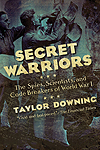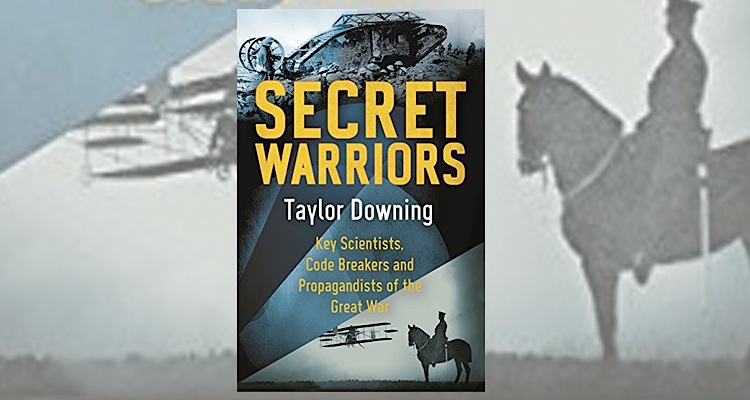
Secret Warriors: The Spies, Scientists and Code Breakers of World War I, by Taylor Downing, Pegasus Books, New York, $28.95
British TV producer and writer Downing argues persuasively that almost every significant modern-day military advance originated in 1914 and, less persuasively, largely in Britain. His book focuses on advances in code breaking, aviation, communication, medicine and weapons.
Six hours after the declaration of World War I a British ship cut Germany’s undersea cables. That left radio as its only means of overseas communication, and the British could listen in. Those familiar with the World War II Bletchley Park geniuses may not realize Britain did even better in World War I, deciphering most German transmissions from the outset.
Although dogfights dominated headlines, reconnaissance was the airplane’s leading wartime contribution. No reader will be surprised that early airmen recognized the import of strategic bombing. Had the war continued, Britain would have introduced a four-engine bomber, the Handley-Page V/1500, which could carry a heavier payload than a World War II B-17.
Holding the traditional military view of journalists as a nuisance, the British War Office banned reporters from the front. It was 1915 before five reporters and a few photographers got near the fighting. This included two cinematographers, whose 100-pound camera produced mostly bland scenes of soldiers marching and artillery firing. The familiar clips of troops going “over the top” were staged.
World War I was the first recorded conflict in which more soldiers died from combat wounds than disease. Sanitation and antisepsis saved many lives, but Downing also addresses dazzling advances in surgery and the organization of an efficient military medical service. The high command at first tolerated a sympathetic treatment of “shell shock” (aka post-traumatic stress disorder), but disturbed at the loss of so many men, it ultimately cracked down. Oddly, the rate of recovery seemed little different.
Discussing iconic weapons, Downing gives poison gas, artillery and the machine gun their due but points out that the hand grenade became essential in trench warfare, and that the tank was a game changer.
Readers bored by the debate over which was the first modern war will enjoy this skillful history and likely agree that World War I deserves that distinction.
—Mike Oppenheim





